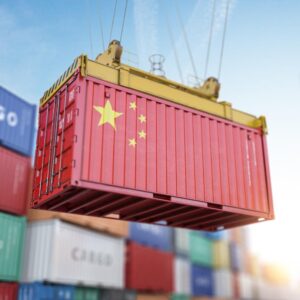U.S. President Donald Trump has a bombshell on the global economy, unveiling a sweeping tariff policy that slaps a 10% tax on all imports entering the United States, effective April 5, 2025. Billed as a defense against “unfair trade practices,” this move, powered by the International Emergency Economic Powers Act, aims to supercharge American self-reliance. For Uganda, a nation still smarting from its January 2024 expulsion from the African Growth and Opportunity Act (AGOA), these tariffs are a gut punch, threatening to unravel its fragile export-driven economy.
In a fiery White House speech on April 2, 2025, Trump laid out his plan: a 10% baseline tariff on all foreign goods, with steeper “reciprocal” rates targeting around 60 countries he accuses of exploiting U.S. markets. Uganda, lumped in with nations like Kenya, Ghana, and Tanzania, faces the 10% hit, while a separate 25% tariff on foreign-made cars kicked in immediately on April 3, 2025. Trump pointed fingers at countries with high tariffs on U.S. goods, vowing to level the playing field, but for Uganda, the timing couldn’t be worse.
Uganda’s economic lifeline is agriculture, with coffee, vanilla, and casein topping its exports to the U.S. In 2023, it shipped $58.2 million in coffee alone to American buyers, a trade now saddled with the 10% tariff after losing AGOA’s duty-free perk. U.S. importers might ditch Ugandan beans for cheaper options from Brazil or Vietnam, slashing demand and leaving Kampala’s trade balance in tatters.
Take a $1 million coffee shipment—previously tax-free under AGOA, it now faces an extra $100,000 hit. A 2019 National Bureau of Economic Research study suggests importers will either hike prices for U.S. consumers or scale back orders, both bad news for Uganda. Local coffee prices could tank, hammering the incomes of smallholder farmers already battling drought and soaring fertilizer costs.
Vanilla and casein, Uganda’s smaller but vital exports, aren’t safe either. The U.S. food and manufacturing sectors might balk at the added costs, shrinking these niche markets. Farmers in regions like Mukono and Bundibugyo, who’ve leaned on these crops for steady cash, could see their livelihoods unravel fast.
The 25% auto tariff adds another twist, even though Uganda doesn’t ship cars to the U.S. It imports heaps of second-hand vehicles from Japan and Germany—nations now hit by the U.S. car tax—which could flood Uganda with cheap rides as global stocks pile up. But shipping costs are spiking, and a stronger U.S. dollar, flagged by X users, might jack up prices anyway.
Beyond exports, Uganda’s imports from the U.S.—think machinery, drugs, and tech—could get pricier as the shilling weakens. Inflation’s already a worry, with food prices up 8% in 2024 per Uganda Bureau of Statistics data, and this could tip the scales further. Foreign exchange reserves, critical for debt payments, are under strain, especially after Trump’s January 2025 aid freeze slashed U.S. support.
The double whammy of AGOA’s loss and these tariffs is a structural nightmare. Export cash fuels Uganda’s roads, schools, and clinics, but with revenues sliding, those projects could stall. President Yoweri Museveni’s government, juggling a $4.8 billion IMF loan, has little room to prop up farmers or exporters with subsidies.
Museveni might push for deals with the EU or China, but neither matches the U.S. coffee market’s scale or premium prices. The East African Community offers some hope—Kenya’s a big buyer—but regional trade can’t plug the gap. Calls are already on for tax breaks or new markets, though cash-strapped Kampala’s options are slim.
Globally, Trump’s tariffs are lighting a fuse under trade relations. Canada’s mulling a 15% tax on U.S. energy exports, Mexico’s eyeing steel duties, and the EU’s drafting its own retaliation. The IMF’s sounding alarms, warning of a 2025 growth dip below 3.3%, which could tank commodity prices and squeeze Uganda harder.
Trump touts a 2024 study claiming his first-term tariffs revived U.S. manufacturing, but a 2019 IMF report begs to differ, pegging losses at billions for both the U.S. and China. Uganda, a minnow in this fight, can’t throw punches back—it’s stuck soaking up the fallout. Analysts say coffee exports could drop 20% by year-end if demand dries up, per Kampala-based trade expert Dr. Ezra Muhumuza.
Voices on the ground are growing louder. Agnes Nakato, a coffee farmer had this to say, “We’re planting less already—America was our hope.” Traders in Kampala’s Owino market fear imported goods like U.S.-made phones will cost more, hitting consumers already stretched thin.







